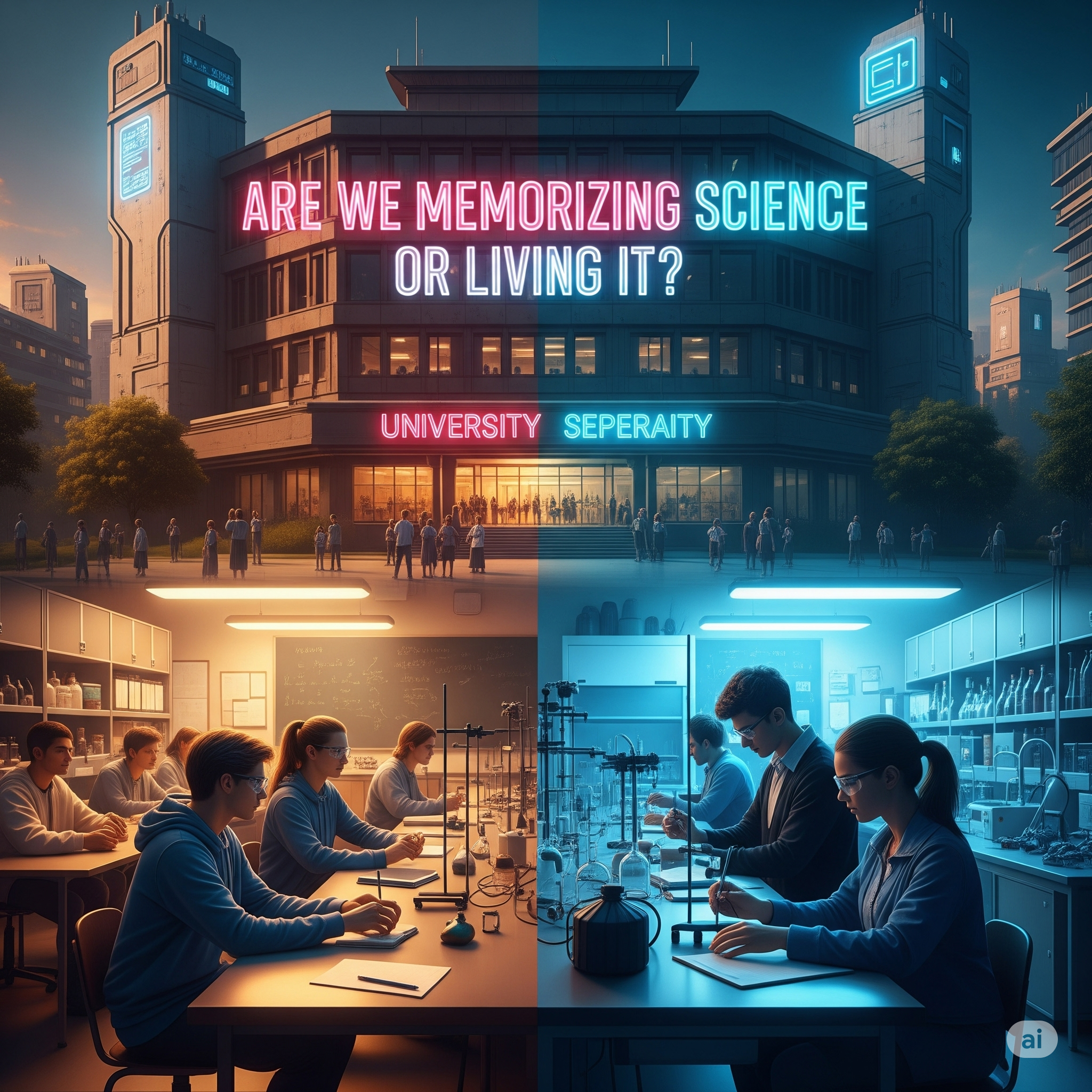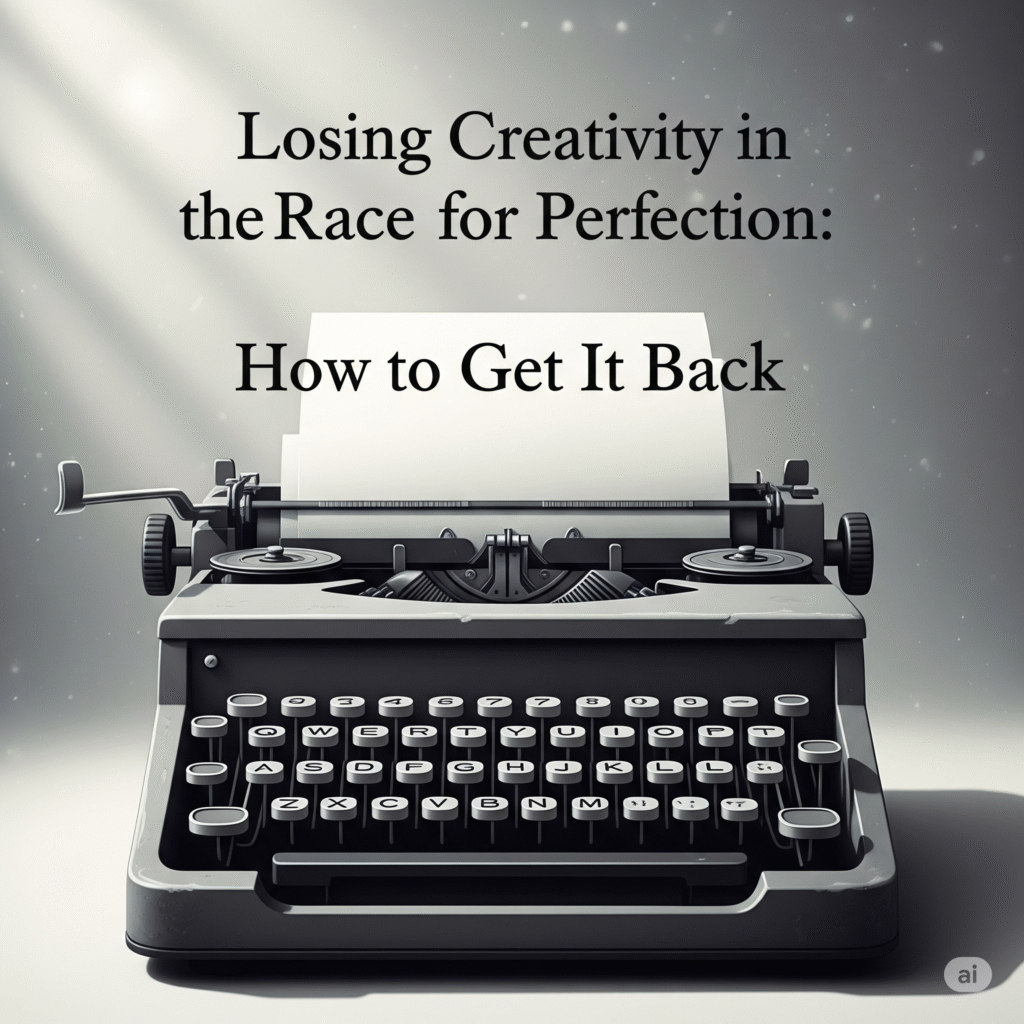Losing Creativity in the Race for Perfection:
Today, many people are chasing perfection. We want perfect results, perfect marks, perfect photos, and even perfect lives. But in this constant search, we are slowly losing something much more important—our creativity.
Creativity doesn’t mean being perfect. It means thinking in new ways, making mistakes, and trying again. When we try to be perfect all the time, we become afraid to take risks. And when fear grows, creative thinking disappears.

Let’s look at how the race for perfection is hurting our creativity—and how we can bring it back.
Why Are We Obsessed with Perfection?
There are many reasons:
-
School and exams reward right answers, not new ideas.
-
Social media shows only the best side of people’s lives.
-
Parents and teachers often push students to be the best, not the most original.
-
Workplaces expect polished results more than fresh thinking.
So, many people start copying others. They repeat what already works. They avoid mistakes. And slowly, they stop creating anything new.
How Perfection Kills Creativity
Trying to be perfect all the time can do more harm than good. Here’s how:
1. Fear of Mistakes
Creativity needs freedom. But when we fear making mistakes, we stop trying new things. We stay in a safe zone. And that safe zone is where ideas die.
2. Copying Over Thinking
Students often copy answers from teachers’ notes just to get better marks. But this habit blocks deep thinking and real understanding.
3. Pressure to Perform
In schools, colleges, or jobs, people feel pressure to get it right every time. This pressure kills joy, slows learning, and silences original ideas.
🔍 Are We Memorising Science or Living It?
Science is all around us—from the way we breathe to the food we cook and the phones we use. It’s not just a school subject; it’s a part of everyday life. Yet, in most classrooms, students are taught to memorise definitions and copy the teacher’s notes instead of exploring, asking questions, or experimenting.
Why? Because the system rewards marks over meaning, and rank over real understanding. In the rush to be “perfect” or top of the class, students often lose the joy of discovery—the very heart of science.
But science isn’t about perfect answers. It’s about curiosity, testing ideas, and learning from failure. When students focus only on exams, they miss the chance to connect science to life—to see how it solves problems, sparks creativity, and shapes the future.
It’s time we remind young minds: Science is not something to copy. It’s something to explore.

What Can We Do to Stay Creative?
Even in a world that chases perfection, we can still protect our creativity. Here’s how:
✅ 1. Value Ideas Over Outcomes
Not every idea will be perfect, but every idea matters. Focus on trying, not just winning.
✅ 2. Make Space for Mistakes
Mistakes are not failures—they’re lessons. Allow yourself and others to mess up sometimes.
✅ 3. Ask More Questions
Creativity begins with curiosity. So, ask “Why?”, “How?”, and “What if?”
✅ 4. Limit Comparison
Stop comparing yourself to perfect posts or perfect people. Everyone’s path is different.
✅ 5. Create More, Judge Less
Write, draw, build, imagine—without worrying if it’s “good enough.” The act of creating is what matters most.
Final Thoughts
In our search to be the best, we are forgetting how to be ourselves. Perfection is not the goal—growth, learning, and creativity are.
So let’s stop chasing perfection and start celebrating progress and imagination. Because the world needs more thinkers, dreamers, and doers, not just copies of what’s already been done.
📚 References & Further Reading
The Psychology of Procrastination: Why We Self-Sabotage
The Elusive Art of Discipline: Why We Struggle and How to Find Our Rhythm
The End of Privacy: How Our Digital Lives Are Changing Human Behaviour
“Why Are Some People Angrier? Temperament vs. Personality”
🔥 Why Are Women More Affected by Negative Energy in the East? Unveiling the Truth
Digital Detox: Why Your Brain Needs a Break from Screens
The Secret Force Guiding Your Day: Emotion
Harvard Business Review – The Problem with Perfectionism
(Explains how perfectionism reduces innovation and mental health.)
American Psychological Association – The Dark Side of Perfectionism
(Covers how perfectionism links to anxiety, burnout, and lack of creativity.)
National Education Association – Encouraging Creativity in the Classroom
(Advice on helping students move away from rigid answers toward creative thinking.)


Pingback: Extreme Introversion: Thriving in a World Built for Extroverts
I don’t think the title of your article matches the content lol. Just kidding, mainly because I had some doubts after reading the article. https://www.binance.info/cs/register?ref=OMM3XK51